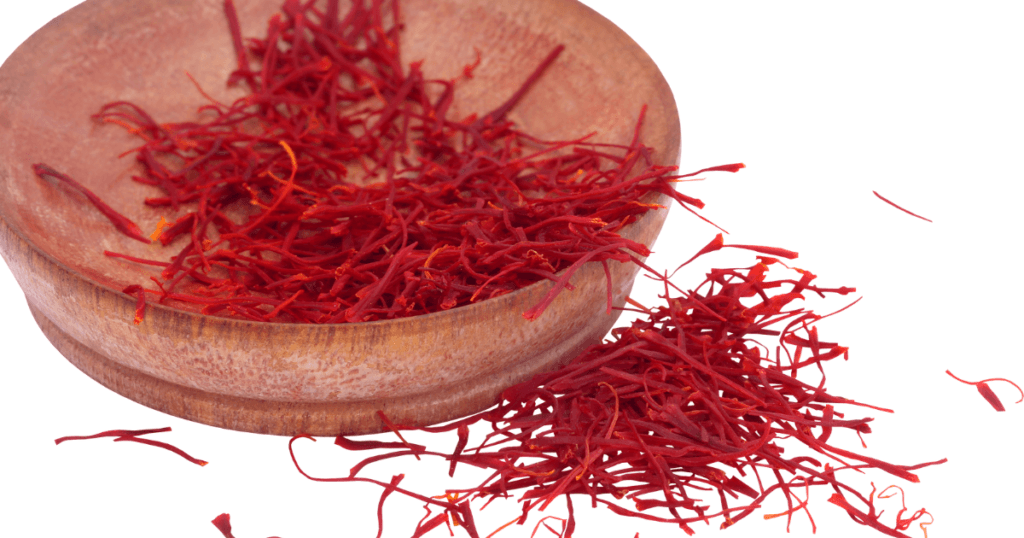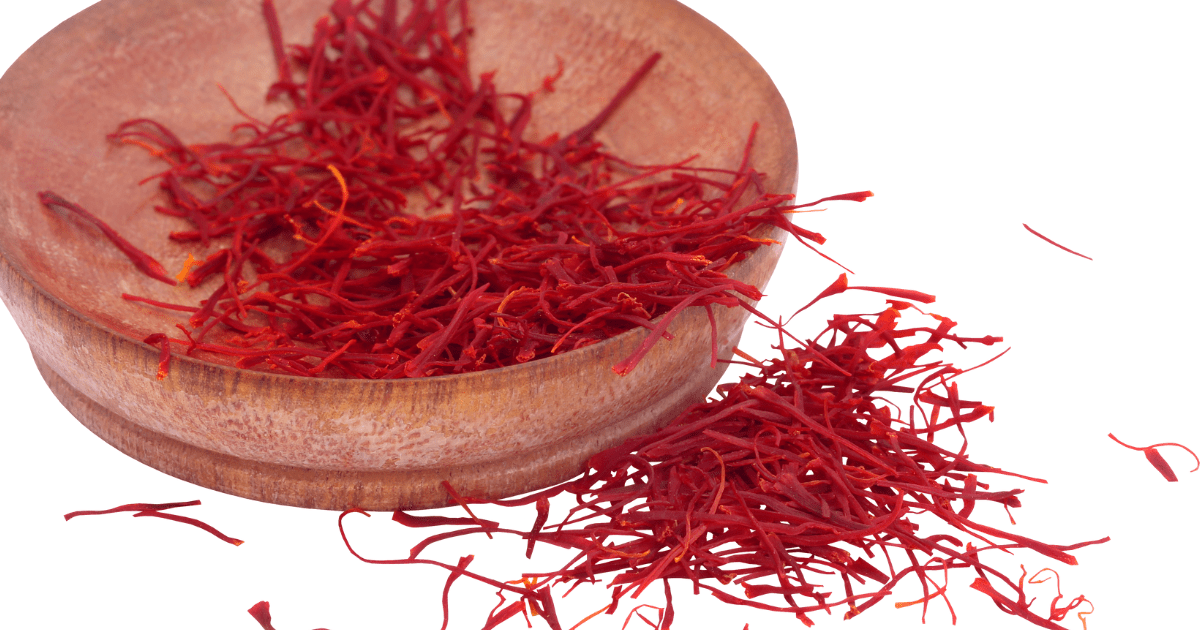Is Saffron the New Miracle Drug? Discover Its Health Benefits
From the Kitchen to the Medicine Cabinet: Saffron’s Versatile Health-Boosting Properties
Saffron is a spice that comes from the flower of Crocus sativus, also known as the saffron crocus. One of the reasons it is one of the most expensive spices in the world is that people harvest it by hand and it requires a lot of labor in the process of separating stigmas from flowers. Farmers plant it between July and September and hand-harvest it between the second half of October and the first half of November.Sunlight greatly impacts the flavor and color of the spice during its harvesting time, which is also crucial.Due to this delicacy its harvesting starts shortly after dawn.
People in Asia have used saffron as a coloring agent in food, to impart a distinct aroma to food and drinks, especially tea, and in the preparation of several herbal medicines. Some of the major saffron-producing countries include India, Iran, Spain, and Italy.
Saffron may help with various conditions such as depression, Alzheimer’s, cancer, diabetes, heart disease, pain, digestion, sleep, immunity, and more. However, researchers need to conduct more studies to confirm its effectiveness and safety. It is generally safe to consume in moderate amounts but may cause some side effects or interactions if taken in excess or with certain medications. Consult your doctor before using it for any medical purpose.
Medicinal Properties
Beth Czerwony, registered dietitian, outlines several health benefits associated with Saffron:
- Weight Loss – A study involving a group of women revealed that taking saffron helped them reduce their craving for food, which in turn was effective in reducing weight. Researchers believe that the active compounds in the spice work by increasing serotonin levels in the brain, which can reduce cravings for food and promote feelings of fullness.
- Antioxidant – As an antioxidant, saffron protects your cells from free radicals and prevents cancer. Findings of research reveal that the antioxidant properties of it contribute to brain health and strengthen the nervous system. People in Asia have used saffron as a coloring agent in food, to impart a distinct aroma to food and drinks, especially tea, and in the preparation of several herbal medicines. These three substances can also be beneficial in preventing Parkinson’s disease.
Brain Health
According to Czerwony, “the antioxidants in saffron could help protect the brain from damage”.

- Seizure Prevention – In Iran, people have used saffron as a remedy for seizures. Some of the studies suggest that it can reduce some types of seizures. However, Czerwony suggests more studies to determine saffron’s effectiveness for the treatment of seizures.
- Premenstrual Syndrome (PMS) Reliever – PMS can cause pelvic pain and sprouting of acne. In some people, PMS can cause mental health issues such as depression and anxiety. In some of the studies, the spice was beneficial in improving PMS-related mental issues.
- Improves Mood and Reduces Depression – Studies have shown that saffron has antidepressant effects, making it a natural alternative to pharmaceutical antidepressants.
Researchers believe that the active compounds in saffron, including crocin and safranal, increase the levels of certain neurotransmitters in the brain, including serotonin, dopamine, and norepinephrine, which play a crucial role in regulating mood.“Saffron”, Czerwony maintains, “could become a future depression treatment if we get more evidence and data”. Czerwony, however, warns that people should not stop taking prescription drugs without consulting their healthcare provider.
- Erectile Dysfunction (ED) – Some research found saffron to be a potent substance for the treatment of ED. Millions of people around the world are suffering from erectile dysfunction, which is to maintain proper erections.
Several herbal formulations for ED in India, Afghanistan, Pakistan, and Iran use saffron as one of the ingredients. According to Czerwony, 30 milligrams of the spice a day can be safely consumed for combating ED but warns not to exceed the amount as excessive amounts can be toxic.
- Treatment of Alzheimer’s disease – Although saffron cannot be as effective as prescription drugs for treating Alzheimer’s disease, it can slow down Alzheimer’s progression. Some of the small-scale studies found that the spice extract had a positive impact on improving cognitive function in people suffering from mild to moderate Alzheimer’s.
Additional Health Benefits
Other health benefits reported in the literature include:
- Improvement in respiratory health – Improving respiratory health by relieving coughs, asthma, and allergies.
- Improving digestive system– Optimizing the digestive system by stimulating appetite, improving digestion, and relieving constipation.
- Act as an analgesic andante-inflammatory agent – Eliminating pain by acting as a natural analgesic and anti-inflammatory agent. Saffron may help with menstrual cramps, headaches, arthritis, and toothaches.
- Improving sleep pattern – Improving sleep patterns by having sedative and hypnotic effects. Saffron may also help with insomnia and anxiety.
- As cancer preventive aid – Preventing cancer by inhibiting tumor growth and inducing apoptosis (cell death) in cancer cells. It may also enhance the effects of chemotherapy drugs.
- Reduce bleeding– Reduce bleeding by acting as a blood coagulant and preventing excessive blood loss. It may also help with nosebleeds, hemorrhoids, and bruises.
- Diabetes– Managing diabetes by lowering blood sugar levels and increasing insulin sensitivity. Saffron may also prevent diabetic complications such as kidney damage and nerve damage.
- Heart Health– Boosting heart health by lowering blood pressure, cholesterol, and triglycerides levels. It may also prevent atherosclerosis (hardening of the arteries) and improve blood circulation.
- Immune System– Improving immune function by stimulating the production of white blood cells and antibodies. The spice may also have antibacterial, antiviral, and antifungal properties.
- Boosts Brain Function – Saffron has been shown to improve cognitive function, memory, and learning ability. In a study of healthy adults, taking the spice supplements for four weeks was found to improve performance on memory tasks compared to a placebo.
Antioxidant Properties
Believers in saffron’s antioxidant compounds, including crocin and safranal, assert that they safeguard the brain from oxidative stress and inflammation, factors that can contribute to cognitive decline.
- Lowers Blood Pressure and Improves Heart Health – Saffron has been shown to have a positive effect on heart health, including reducing blood pressure and improving blood lipid levels. In one study, taking saffron supplements for eight weeks was found to significantly reduce both systolic and diastolic blood pressure.
Its heart-healthy effects are believed to result from its antioxidant and anti-inflammatory properties, which reduce oxidative stress and inflammation in the body.
- Reduces Inflammation and Improves Arthritis Symptoms – Studies have shown that it possesses anti-inflammatory properties, making it a natural remedy for conditions characterized by inflammation, such as arthritis.
In one study, researchers found that taking its supplements for six weeks significantly reduced inflammation markers in people with arthritis and improved symptoms such as joint pain and stiffness.
- Improves Skin Health and Reduces Acne – It has been shown to have anti-inflammatory and antioxidant properties, making it a natural remedy for skin conditions characterized by inflammation, such as acne.
In one study, applying a saffron gel to the skin for 12 weeks was found to significantly reduce acne lesions and improve skin texture compared to a placebo.
References:
Healthline. 11 Impressive Health Benefits of Saffron. (https://www.healthline.com/nutrition/saffron). Accessed April 23, 2023
Olsen, N. (November 15, 2019). Medical News Today. What are the health benefits of saffron? (https://www.medicalnewstoday.com/articles/327017). Accessed April 21, 2023
Cleveland Clinic. (July 6, 2022). How Saffron Could Benefit Your Health. (https://health.clevelandclinic.org/benefits-of-saffron/). Accessed April 26, 2023
Staughton, J. (February 28, 2020). Organic Facts. 11 Amazing Benefits Of Saffron. (https://www.organicfacts.net/saffron.html). Accessed April 24, 2023 Patel, H. (October 12, 2022). HealthifyMe. Saffron: Benefits, Nutrition, Side Effects & Ways To Use. (https://www.healthifyme.com/blog/saffron-benefits/). Accessed April 22, 202
Category
- Health Issues (72)
- Healthy Diet (48)
- Herbs for Health (11)
- Mental Health (33)
- Skin Care (20)

